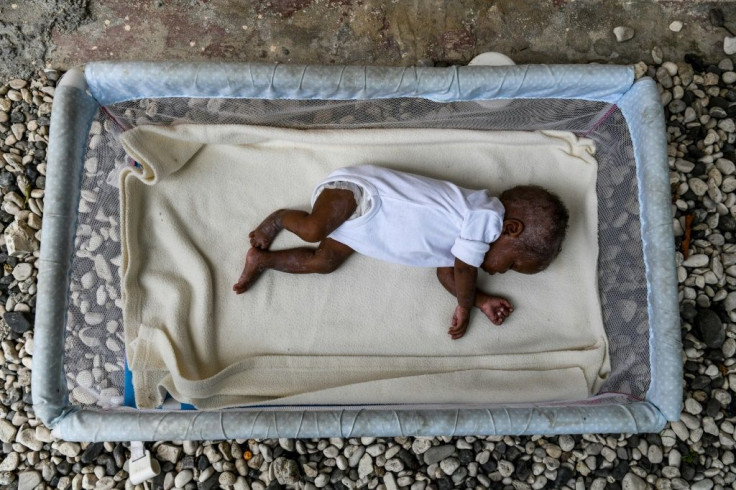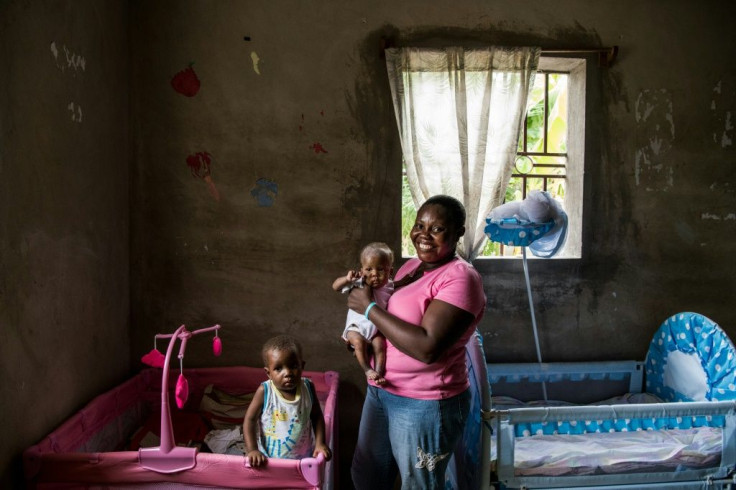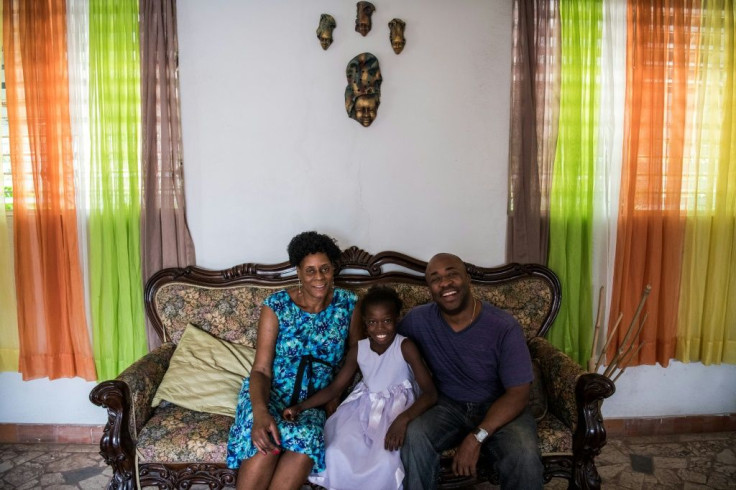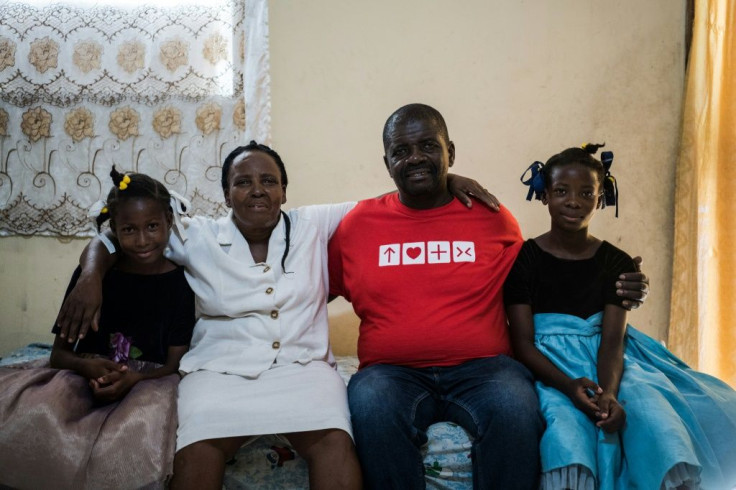Haiti Pushes Foster Homes To Counter Problems In Orphanages

Rose Boncoeur brought two emaciated little girls to live in her modest home in Haiti as part of a reform drive aimed at keeping children out of orphanages.
"People often asked me if I am crazy," said Boncoeur, whose name means "good heart."
The government of the Americas' poorest country is pushing to deinstitutionalize children so as to avoid the darkest sides of orphanage life -- trafficking of kids or even worse abuse.
So far, 120 homes in Haiti have opened their doors to children with nowhere else to go.
Boncoeur gets no financial help to feed or clothe her two charges, and is forced to ask people for used clothing for her foster children -- sisters, aged eight months and three years.
"Some people do not understand that I spend money on children who are not mine," said Boncoeur, who is proud that her biological daughter treats those girls like siblings.
Much of the problem goes back to the devastating earthquake that hit Haiti in 2010, which left more than 250,000 people dead and largely demolished the capital city, Port-au-Prince.

The number of orphanages and other care facilities for children more than doubled.
Of the 754 that now exist in Haiti, only around 50 are licensed or in the process of getting a license from IBESR, the government's child social welfare agency.
The government has now barred any more such institutions from opening.

The government has also finally signed an international convention designed to safeguard inter-country adoptions.
Before, a foreigner could just go to an orphanage in Haiti, strike a deal with the director, and adopt a child, with IBESR only involved at the end of the process to act as a type of registrar of the match, said its director, Arielle Jeanty Villedrouin.
IBESR now heads the process, deciding who the children will go with, "which averts some excesses because there has been talk of pedophilia and organ trafficking," she said.

State intervention in matching children with people who want to adopt is also seen as a critical to avoiding heartbreak for parents who give up their kids to orphanages.
"People would entrust their children to an orphanage and maybe sign a document without even knowing how to read," said Villedrouin.
She said the child welfare agency often had to deal with weeping mothers who came looking for children who had been adopted and taken out of the country.
Eighty percent of the estimated 27,000 children living in orphanages in Haiti have at least one parent alive.
Child welfare advocates here say it is a shame that abject poverty can destroy families and strip children from their parents when some orphanages actually have a lot of money.
In 2017, Lumos, an NGO founded by the writer JK Rowling of Harry Potter fame to reunite orphanage kids with their parents, reported that at least 70 million dollars are received yearly by just a third of the orphanages in Haiti.
"Seventy million dollars: imagine how this money could have helped children stay with their parents," said Villedrouin, whose agency has an annual budget of just $1 million.
UNICEF is also pushing for governments to change their way of thinking and spend money to keep families together.
"Studies have shown that for each year that a child spends in an orphanage, he or she loses three to four months of psycho-cognitive development," said Maria Luisa Fornara, director of the UNICEF office in Haiti.
While the killer 2010 earthquake caused international aid to be channeled toward orphanages, it prompted the Cledion family in Haiti to become foster parents.
They had already become empty-nesters.
Now, they are raising two girls -- Jesly, 10, and Fedjiana, 11.
"After making it through that terrible experience alive, you understand that you owe other people," said Solon Cledion.
"They are little. It is not their fault that they are poor," said Cledion, who considers these girls to be his daughters.
© Copyright AFP 2024. All rights reserved.





















